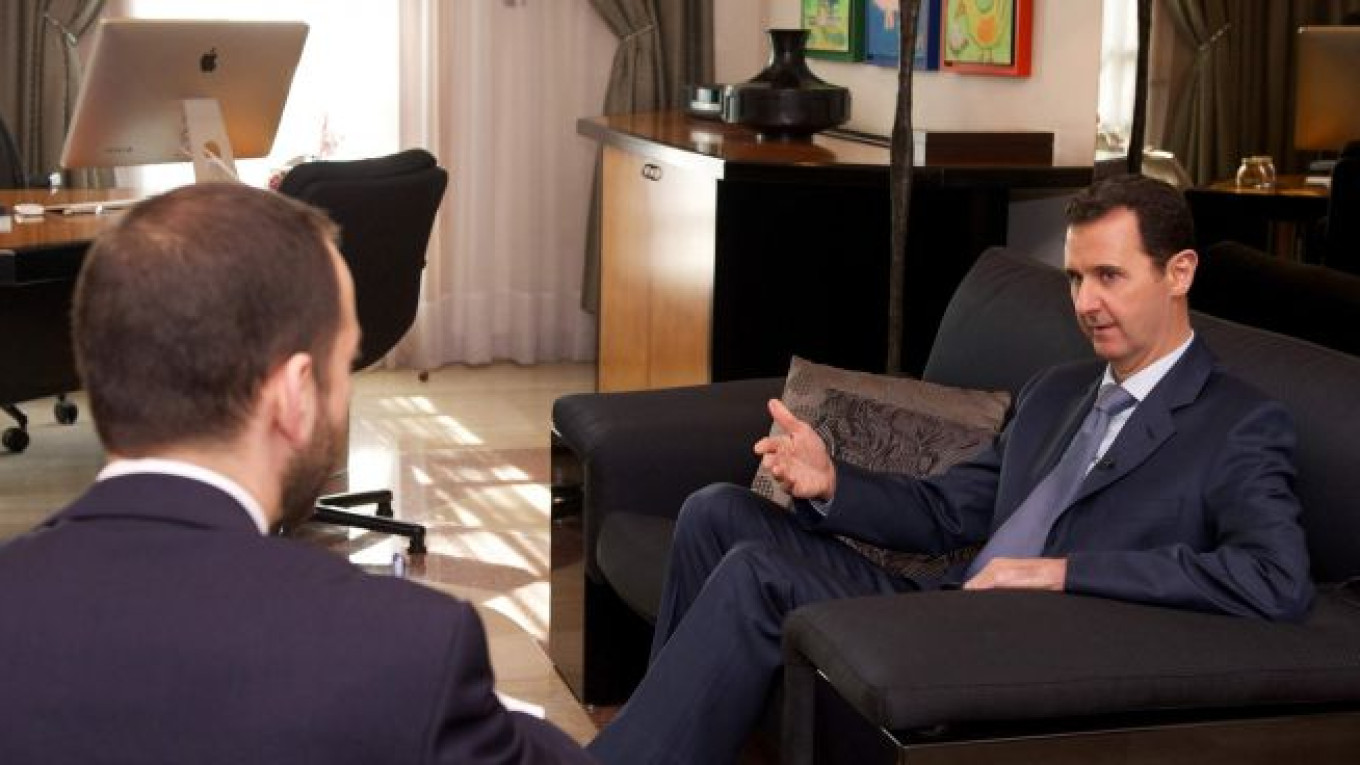Syrian opposition representatives met in Moscow on Monday at the start of a meeting that the Damascus government will join later this week in efforts to revive peace talks.
Nearly four years into a war that has killed more than 200,000 people and displaced millions, even the Russian hosts accept there is little chance of a breakthrough at the conference, spurned by most opposition groups.
No senior Russian officials are due to take part but one senior official said Foreign Minister Sergei Lavrov might join the conference later this week if the initial signs are good.
"If they all gather and the atmosphere is constructive between the representatives of the government and opposition delegations, it's possible there will be a meeting with Minister Lavrov and all of them on Wednesday," Deputy Foreign Minister Mikhail Bogdanov told reporters as delegates gathered at the ministry residence in Moscow.
The initial talks in Moscow will be between opposition groups. Syrian government representatives are expected to join only on Wednesday, the penultimate day of the conference.
Russia's longstanding proposals for a peace plan do not require its ally President Bashar al-Assad to leave power, though his main opponents consider this the basis for any talks.
The United States, which is publicly committed to removing Assad, has not objected to the conference and U.S. Secretary of State John Kerry had said he hopes they can prove useful.
Asked about the Moscow talks, Assad told Foreign Affairs Magazine: "What is going on in Moscow is not negotiations about the solution; it's only preparations for the conference."
He said many countries had no interest in the conference succeeding and wanted them to fail, but added: "I wouldn't say I'm pessimistic. I would say we have hope, in every action."
Opposition figures are attending as individuals rather than as representatives of major factions. Many are thought to be from a Damascus-based official opposition tolerated by Assad and viewed as traitors by his armed enemies.
None of the main Sunni Muslim insurgent groups fighting on the ground was invited.
The main opposition alliance, the Turkey-based National Coalition for Syrian Revolutionary and Opposition Forces, once touted by Western and Arab countries as a government in exile, is boycotting.
Monzer Akbik, a National Coalition representative, said the Moscow talks were "an initiative to reinvent the Assad regime in another form" and that Russia was not an honest broker for peace because it supports the Syrian government.
In the four years of fighting, two UN mediators have hosted high-profile conferences in Geneva, only to quit in frustration after talks failed to yield meaningful progress.
A Message from The Moscow Times:
Dear readers,
We are facing unprecedented challenges. Russia's Prosecutor General's Office has designated The Moscow Times as an "undesirable" organization, criminalizing our work and putting our staff at risk of prosecution. This follows our earlier unjust labeling as a "foreign agent."
These actions are direct attempts to silence independent journalism in Russia. The authorities claim our work "discredits the decisions of the Russian leadership." We see things differently: we strive to provide accurate, unbiased reporting on Russia.
We, the journalists of The Moscow Times, refuse to be silenced. But to continue our work, we need your help.
Your support, no matter how small, makes a world of difference. If you can, please support us monthly starting from just $2. It's quick to set up, and every contribution makes a significant impact.
By supporting The Moscow Times, you're defending open, independent journalism in the face of repression. Thank you for standing with us.
Remind me later.


